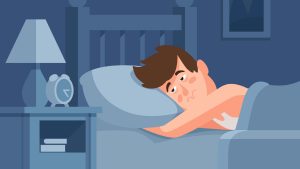
Sleep Scarcity’s Influence: Escalating the Perception of Pain
Introduction: Understanding the Interconnection
Meet Dr. Emily Parker, a distinguished researcher specializing in sleep psychology at Stanford University. With over two decades of research experience, Dr. Parker has devoted her career to unraveling the complex relationship between sleep and pain perception. Her work aims to bridge the gap between sleep science and pain management, offering valuable insights and innovative strategies for healthcare professionals.
The Science Behind Pain Perception
The correlation between sleep scarcity and pain perception is deeply rooted in neurobiological processes. Lack of adequate sleep disrupts the body’s natural pain modulation systems. Research shows that sleep-deprived individuals exhibit altered activity in brain regions responsible for pain processing, leading to an amplified perception of pain stimuli.
Sleep Deprivation: A Catalyst for Heightened Pain Sensitivity
Sleep deprivation adversely affects pain thresholds, amplifying discomfort and sensitivity. Studies reveal that individuals with chronic sleep disturbances experience increased pain intensity and decreased pain tolerance, highlighting the profound impact of sleep quality on pain perception.
Insights for Pain Management Clinics
Pain clinics can optimize patient care by integrating comprehensive sleep assessments into their protocols. Implementing tools such as sleep diaries, actigraphy, and polysomnography helps identify sleep disorders, enabling tailored treatment plans that address both pain and sleep issues for improved patient outcomes.
Empowering Sleep Disorder Support Groups
Support groups focusing on sleep disorders play a pivotal role in promoting healthy sleep hygiene. Education on sleep disorders, encouraging regular sleep schedules, and implementing relaxation techniques can alleviate sleep-related issues, subsequently reducing pain sensitivity.
Holistic Approaches: Integrating Sleep Solutions
Holistic health practitioners advocate for a more integrative approach, emphasizing the interconnectedness of sleep and overall wellness. Integrating acupuncture, herbal remedies, and lifestyle modifications supports better sleep quality, indirectly impacting pain management.
The Role of Mind-Body Techniques in Alleviating Pain Perception
Mindfulness practices, meditation, and relaxation techniques have demonstrated efficacy in pain management. Incorporating these methods aids in regulating stress, improving sleep quality, and subsequently reducing the perception of pain.
Building the Bridge: Collaborative Care Models
Enhancing patient care involves creating collaborative models where pain specialists, sleep physicians, and holistic practitioners work together. By sharing knowledge, treatment plans, and patient insights, these models provide a more comprehensive approach to addressing pain influenced by sleep scarcity.

Table: Sleep Scarcity and Pain Perception
| Key Factors | Impact on Pain Perception |
|---|---|
| Sleep Quantity | Increased Sensitivity |
| Sleep Quality | Pain Severity Amplified |
| Sleep Disorders | Chronic Pain Aggravation |
| Lifestyle Adjustments | Mitigating Pain Sensitivity |
Comparative Table: Strategies for Pain Relief
| Pain Management Clinics | Sleep Disorder Groups | Holistic Health Practitioners |
|---|---|---|
| Sleep Assessment Tools | Sleep Hygiene Programs | Integrative Sleep Therapies |
| Integrated Treatment Plans | Support Networks | Mindfulness and Meditation |
| Pain-Sleep Education | Coping Mechanisms | Comprehensive Wellness Plans |
As we explore the impact of sleep scarcity on the perception of pain, it’s crucial to grasp how interconnected these facets are. Dr. Parker’s expertise brings forth vital knowledge, catering to pain clinics, sleep disorder support groups, and holistic health practitioners seeking to enhance their approach to patient care. This article navigates the science, strategies, and collaborative opportunities, offering a holistic view in managing pain through the lens of improved sleep practices.










